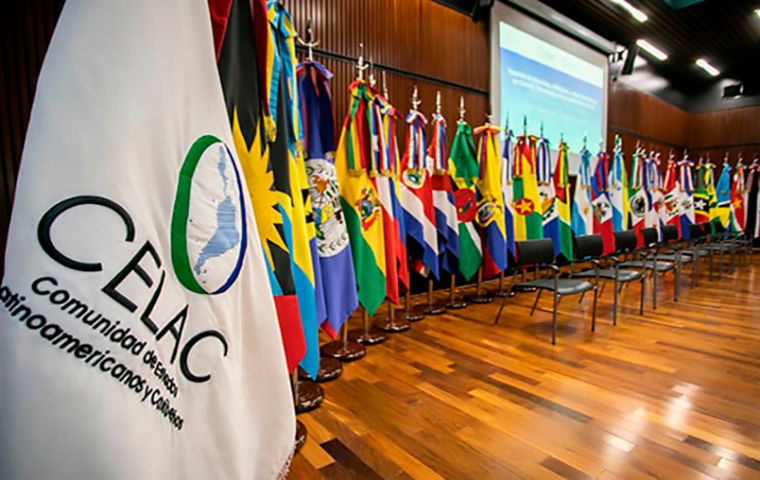MercoPress. South Atlantic News Agency
UN Economic Commission for Latam and Caribbean celebrating 75th anniversary
 The Economic Commission for Latin America was established by a resolution of the UN Economic and Social Council on 25 February 1948 and began work in Santiago that same year
The Economic Commission for Latin America was established by a resolution of the UN Economic and Social Council on 25 February 1948 and began work in Santiago that same year The Economic Commission for Latin America and the Caribbean (ECLAC), in Santiago, Chile, is celebrating 75 years since its creation with a commitment to continue working for a more productive, inclusive and sustainable future for the region.
The Economic Commission for Latin America was established by a resolution of the United Nations Economic and Social Council on 25 February 1948 and began work in Santiago that same year. Later, in 1984, the Council decided that its name would be changed to the Economic Commission for Latin America and the Caribbean, one of the five regional commissions of the United Nations.
In a message, the ECLAC Executive Secretary, Costa Rican economist José Manuel Salazar-Xirinachs, noted that “we have reason to celebrate because the Commission’s contribution to the theory and practice of economic and social development in the region over the past seven and a half decades has been widely recognized in the region and throughout the world.”
According to the institution’s highest representative, “over the years, ECLAC has updated its thinking in accordance with changing realities, creating roadmaps and shedding abundant light on the options and priorities for the progress of our nations.”
The regional commission launched a website that provides an overview of its origins, the evolution of its thinking and current institutional priorities. The site describes the centre-periphery and industrialization model of the 1950s; the structural reforms for regional development in the 1960s; the development styles of the 1970s; the debt crisis of the 1980s; the productive transformation with equity of the 1990s; the triad of globalization, development and citizenship of the 2000s; equality at the centre of sustainable development of the 2010s; and the transformation of the development model into one that is more productive, inclusive and sustainable in the 2020s.
“As we commemorate these 75 years, we begin a new phase in which we will carry out a series of activities that will allow us not only to celebrate our 75th anniversary but also to strengthen our abilities to continue our work and better serve Latin America and the Caribbean to build a more productive, inclusive and sustainable future,” stated José Manuel Salazar-Xirinachs, who took on his role on 3 October 2022.
The website also offers a section with photos of distinguished guests, personnel and the ECLAC building, considered a benchmark of modern Latin American architecture, as well as other resources with information on this regional commission of the United Nations.
ECLAC was founded to contribute to the economic development of Latin America, coordinate actions aimed at promoting this development and strengthen the economic relations between countries in the region and other nations around the world. Later, its work was expanded to the countries in the Caribbean.
In addition to its main headquarters in Santiago, ECLAC has two sub-regional sites, one for the Central American sub-region located in Mexico City and the other for the Caribbean sub-region in Port of Spain, established in June 1951 and December 1966, respectively. It also has national offices in Buenos Aires, Brasilia, Montevideo and Bogota, as well as a liaison office in Washington, D.C.
The 33 countries in Latin America and the Caribbean are members of ECLAC, along with some nations in North America, Europe and Asia, which maintain historical, economic and cultural ties with the region. In total, there are 46 member states and 14 associate members, a legal status granted to some non-independent territories in the Caribbean.




Top Comments
Disclaimer & comment rulesCommenting for this story is now closed.
If you have a Facebook account, become a fan and comment on our Facebook Page!